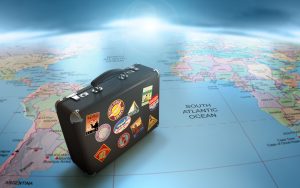Hey there, fellow traveler! Whether you’re a seasoned globetrotter or planning your very first adventure, the excitement of exploring new places is unmatched. However, amidst the thrill, it’s essential to stay vigilant and protect yourself from potential travel scams. Don’t worry, though! We’ve got your back. Here are some friendly tips for avoiding travel scams
Hey there, fellow traveler! Whether you’re a seasoned globetrotter or planning your very first adventure, the excitement of exploring new places is unmatched. However, amidst the thrill, it’s essential to stay vigilant and protect yourself from potential travel scams. Don’t worry, though! We’ve got your back. Here are some friendly tips for avoiding travel scams to ensure your journey remains smooth and enjoyable.
Research
Before booking anything, take the time to do thorough research. Look up reviews and ratings for airlines, hotels, and travel agencies. Websites like TripAdvisor, Yelp, and Google Reviews can provide valuable insights from fellow travelers. Knowledge is power, and it’s your first line of defense against scams.

Image by Yandex .com
Book Through Reputable Sources
Stick to well-known and reputable travel booking platforms. Websites like Expedia, Booking.com, and Airbnb have established credibility and often offer customer protection policies. Be wary of deals that seem too good to be true on lesser-known websites.
Verify the Legitimacy of Offers
If you receive an unsolicited email or phone call offering an unbelievable travel deal, it’s wise to be skeptical. Scammers often use these tactics to lure unsuspecting travelers. Always verify the legitimacy of such offers by contacting the company directly through their official website or customer service number.
Use Secure Payment Methods
When making payments, use secure methods such as credit cards or trusted payment platforms like PayPal. These methods offer additional protection and recourse in case of fraudulent transactions. Avoid wire transfers or paying in cash, as these are harder to trace and recover.
Be Wary of “Free” Offers
While everyone loves freebies, be cautious of offers that promise free vacations, flights, or accommodations. Scammers often use these tactics to gather personal information or charge hidden fees. Always read the fine print and understand the terms and conditions.
Protect Your Personal Information
Keep your personal information secure. Avoid sharing sensitive details like your passport number, credit card information, or home address unless you are certain of the recipient’s legitimacy. Scammers can use this information for identity theft or other malicious activities.
Watch Out for Fake Websites
Scammers often create fake websites that mimic legitimate travel companies. Check the website’s URL carefully for any misspellings or unusual characters. Look for secure site indicators, such as “https” and a padlock icon in the address bar.

Image by Yandex .com
Trust Your Instincts
If something feels off, trust your instincts. High-pressure sales tactics, requests for immediate payment, or overly complex booking processes can be red flags. It’s okay to take a step back and reevaluate the situation.
Keep Copies of Important Documents
Make copies of important travel documents, such as your passport, visa, and travel itinerary. Keep both physical and digital copies in a secure location. In case of loss or theft, having copies can expedite the replacement process.
Stay Informed About Common Scams
Educate yourself about common travel scams in your destination. Every location has its own set of scams, from taxi overcharges to street vendor tricks. Being aware of these can help you recognize and avoid them.
Travel Insurance
Investing in travel insurance can provide peace of mind and financial protection against unforeseen events, including scams. Make sure to choose a policy that covers various aspects of your trip, such as medical emergencies, trip cancellations, and lost belongings.
Communicate with Fellow Travelers
Join travel forums and social media groups where you can connect with other travelers. Sharing experiences and tips can help you stay informed about potential scams and learn from others’ mistakes and successes.
Be Cautious with Public Wi-Fi
Public Wi-Fi networks can be convenient but are often insecure. Avoid accessing sensitive information, such as banking details, while connected to public Wi-Fi. Consider using a VPN (Virtual Private Network) to encrypt your data and protect your privacy.

Image by Yandex .com
Stay Alert in Crowded Areas
Busy tourist spots are prime locations for pickpockets and scammers. Keep your belongings close and be cautious of distractions. Scammers often work in teams, with one person creating a diversion while another targets your valuables.
Conclusion
If you encounter a scam or suspicious activity, report it to local authorities and your embassy or consulate. Your actions can help protect other travelers and bring scammers to justice. Traveling is an incredible experience that broadens your horizons and creates lasting memories. By staying informed and vigilant, you can protect yourself from travel scams and focus on the joy of exploration. Remember, a little caution goes a long way. Safe travels, and happy adventuring!
















